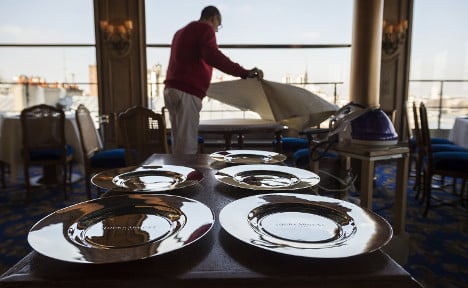A silver-plated press used to squeeze blood and bone marrow from ducks for a signature dish at legendary Paris restaurant Tour d'Argent fetched more than €40,000 ($45,000) at auction on Monday.
 (A duck press or duck squeezer as some call it. Photo: Julie Corsi/Flickr)
(A duck press or duck squeezer as some call it. Photo: Julie Corsi/Flickr)
The duck press from the 19th-century manufacturer Christofle, inscribed with the famous Left Bank restaurant's emblem, sold to a French collector for roughly 10 times the estimate of between €4,000 and €6,000.
The restaurant, which offers stunning views of the river Seine and Notre Dame cathedral, says it has served some 1.15 million dishes of “Canard a la Presse” since 1890.

The silver press, one of four owned by the Michelin-starred restaurant that is said to have been founded in 1582, was among some 3,000 items including silver cutlery, glasses and bottles of liquor going under the hammer at the Artcurial auction house in the two-day sale.
The lots belong either to the restaurant itself, or the Terrail family, which has owned the restaurant since the start of the 20th century.
The auction house expects the sale to raise between €400,000 and €500,000.
Among the liquors in the catalogue are three bottles of 1788 Clos de Griffier cognac valued at between €20,000 and €25,000 each.



 Please whitelist us to continue reading.
Please whitelist us to continue reading.
Member comments